August 5, 2021
Search Results for: stress
July 30, 2021
Technology is the great enabler for employee wellbeing programmes
by Neil Franklin • Company news, Wellbeing
 Technology is now integral for short and long-term employee wellbeing following the dramatic changes to working life caused by the COVID-19 pandemic, according to Thomas Woods, Vice-President of Enterprise for Virtuagym, the global fitness technology provider. The argument was made during a keynote presentation at the Virtual Engage Employee Wellbeing Conference, a case study led solutions event addressing the important challenges and opportunities relating to the mental, financial and physical health of people in the workplace. (more…)
Technology is now integral for short and long-term employee wellbeing following the dramatic changes to working life caused by the COVID-19 pandemic, according to Thomas Woods, Vice-President of Enterprise for Virtuagym, the global fitness technology provider. The argument was made during a keynote presentation at the Virtual Engage Employee Wellbeing Conference, a case study led solutions event addressing the important challenges and opportunities relating to the mental, financial and physical health of people in the workplace. (more…)
July 28, 2021
Firms continue to underestimate employee turnover threat, study claims
by Neil Franklin • Flexible working, News, Workplace
 A new study from communications agency Zeno Group claims that businesses continue to underestimate the chances of an increase in employee turnover as a result of changing attitudes towards work. According to the survey, while companies often focus on addressing their disengaged or disgruntled groups, the study finds that 58 percent of satisfied employees in the UK now report being open to new opportunities, with many actively searching. In addition, those surveyed report their employers do not recognize this reality, with just 20 percent of respondents saying their employers think many workers are looking for new roles elsewhere. (more…)
A new study from communications agency Zeno Group claims that businesses continue to underestimate the chances of an increase in employee turnover as a result of changing attitudes towards work. According to the survey, while companies often focus on addressing their disengaged or disgruntled groups, the study finds that 58 percent of satisfied employees in the UK now report being open to new opportunities, with many actively searching. In addition, those surveyed report their employers do not recognize this reality, with just 20 percent of respondents saying their employers think many workers are looking for new roles elsewhere. (more…)
July 27, 2021
St John Ambulance calls on employers to step up mental health support for workers
by Jayne Smith • News, Wellbeing, Working lives
 St John Ambulance is calling on employers to respond to the impact of the Covid-19 pandemic on workers’ mental health as it launches courses in how to talk about it with employees. (more…)
St John Ambulance is calling on employers to respond to the impact of the Covid-19 pandemic on workers’ mental health as it launches courses in how to talk about it with employees. (more…)
July 20, 2021
Employees urge workplaces to focus on mental health as world reopens
by Jayne Smith • News, Wellbeing, Working culture
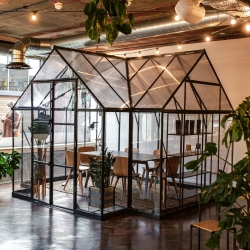 Access to workplace counsellors, mental health training and support groups are topping the charts on what workers want on their return to the office, according to new research by CERT Property. (more…)
Access to workplace counsellors, mental health training and support groups are topping the charts on what workers want on their return to the office, according to new research by CERT Property. (more…)
July 12, 2021
Working from home during pandemic has taken toll on mental health
by Jayne Smith • News, Wellbeing, Working lives
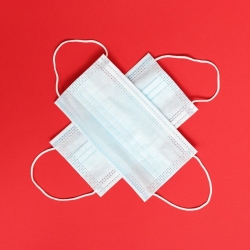
New research by the National Centre for Social Research (NatCen) claims there are links between working from home during the pandemic and increased levels of loneliness and mental distress. NatCen analysed data from interviews carried out with 8,675 people before the pandemic and in May, July and November 2020 for the Understanding Society COVID-19 survey. (more…)
July 8, 2021
Climate Commission launched to identify green investment opportunities
by Jayne Smith • Environment, News
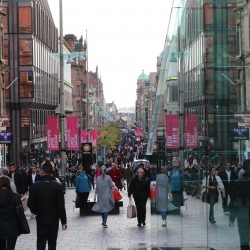 The new UK Cities Climate Investment Commission begins work to identify Green Investment opportunities across UK Cities. Cities, investment and innovation experts have launched a Commission which begins the process of identifying a transformational programme of Green Growth for the UK’s cities. (more…)
The new UK Cities Climate Investment Commission begins work to identify Green Investment opportunities across UK Cities. Cities, investment and innovation experts have launched a Commission which begins the process of identifying a transformational programme of Green Growth for the UK’s cities. (more…)
July 5, 2021
Turn your commercial buildings into virtual power plants
by Freddie Steele • Company news, Environment
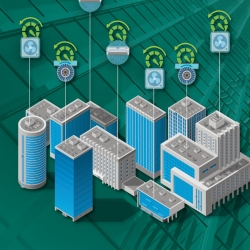 A new white paper from OakTree Power explains how an innovative technology called Green Demand Side Response (DSR) can help organisations transform their commercial buildings into a virtual power plant. Paradoxically, commercial buildings not only represent one of the biggest sources of greenhouse gas emissions, but also have the potential to utilise their own electricity as a resource to sell back into the Grid – a process familiar to many domestic homeowners with solar panels or Tesla Powerwalls. (more…)
A new white paper from OakTree Power explains how an innovative technology called Green Demand Side Response (DSR) can help organisations transform their commercial buildings into a virtual power plant. Paradoxically, commercial buildings not only represent one of the biggest sources of greenhouse gas emissions, but also have the potential to utilise their own electricity as a resource to sell back into the Grid – a process familiar to many domestic homeowners with solar panels or Tesla Powerwalls. (more…)
July 1, 2021
Half a million employees could be made to return to the office before they’re ready
by Jayne Smith • Flexible working, News, Wellbeing, Working lives
 More than a half a million UK employees could be made to return to their normal workplaces before they are comfortable doing so, according to new research from Benenden Health. (more…)
More than a half a million UK employees could be made to return to their normal workplaces before they are comfortable doing so, according to new research from Benenden Health. (more…)
June 29, 2021
Insecure income, boredom and physical health impacted employee wellbeing most in lockdown
by Jayne Smith • Flexible working, News, Wellbeing, Working lives
 Having an insecure financial situation, being bored in both work and free time, and worsening physical health were the biggest factors affecting employee’s wellbeing, during the first covid-19 lockdown, according to new research from emlyon business school. (more…)
Having an insecure financial situation, being bored in both work and free time, and worsening physical health were the biggest factors affecting employee’s wellbeing, during the first covid-19 lockdown, according to new research from emlyon business school. (more…)






 ‘Pleasanteeism’ – the pressure to put on a brave face – is undermining efforts to promote an open dialogue about mental health at work, according to new research by
‘Pleasanteeism’ – the pressure to put on a brave face – is undermining efforts to promote an open dialogue about mental health at work, according to new research by 


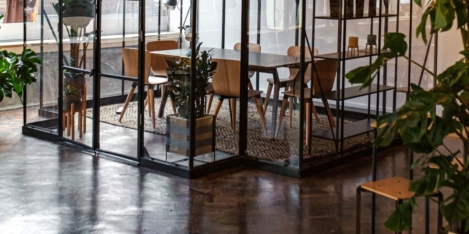

 New research from beauty company
New research from beauty company 
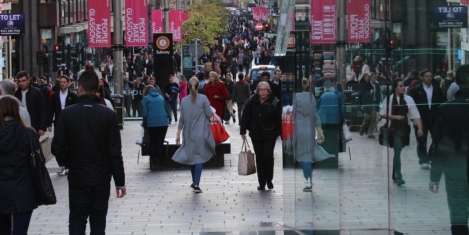












June 25, 2021
Trees can’t solve the climate change problem. That’s our job
by Scott Petersen • Comment, Environment, Facilities management